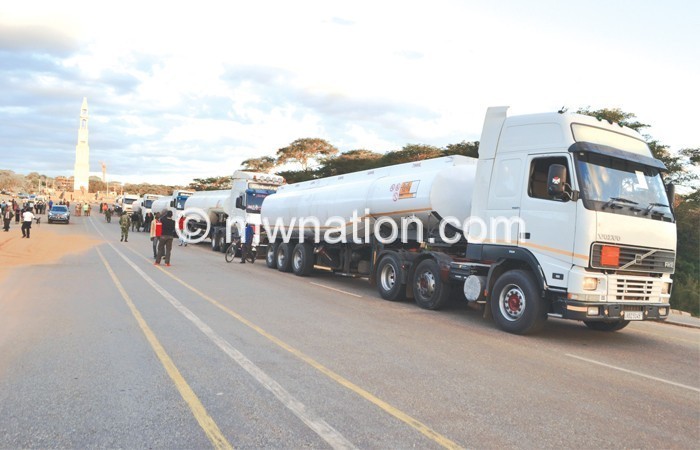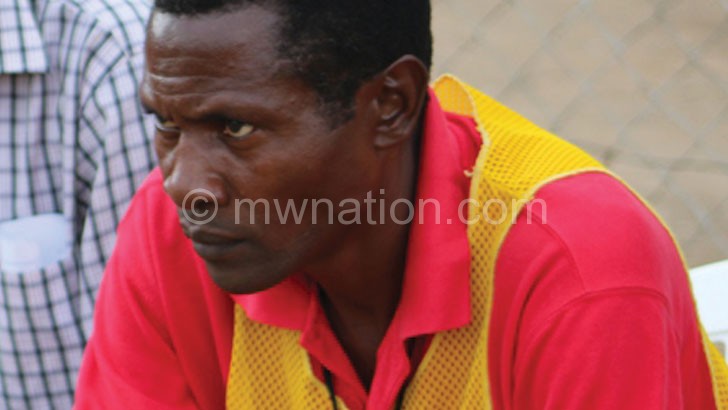Fuel transporters confront govt
Fuel tankers operators have asked government to discontinue and abolish the current system of importing fuel into the country which favours foreign fuel transporters.
The operators have also asked government to consider buying more volumes of fuel using the Beira route in Mozambique as opposed to Dar es Salaam in Tanzania where they face numerous challenges.

According to a letter from Fuel Tankers Operators Association (FTOA) addressed to Minister of Transport and Public Works Sidik Mia which Weekend Nation has seen, the current system is putting local transporters at a disadvantage.
The operators are against the delivered duty unpaid (DDU) system which is being used mostly by Tanzanian transporters who haul fuel into the country from Dar es Salaam.
The Tanzania tankers operators wholly transport fuel that lands through Dar es Salaam to Malawi while local transporters mostly haul fuel from Mozambique under what is termed as x-tank system.
The bone of contention is that the DDU system gives fuel suppliers a choice of transporters to use as opposed to the x-tank where clients in Malawi choose their own to haul their fuel.
“This is putting local transporters at a disadvantage as foreign suppliers naturally prefer to use Tanzania transporters,” reads part of the letter to Mia dated September 1 2020 and signed by the association’s chair Gordon Luhanga.
Some of the challenges local operators face in Tanzania are loading of fuel, processing of documents which takes mostly seven days after loading and the exorbitant road access charges and carbon tax fees pegged at K100 000 per trip.
“All these charges are meant to frustrate foreign transporters in moving cargo from their country. The Malawi government needs to apply the same fees to make the playing field level,” reads the letter.
The operators also claimed the Tanzanian transporters were being given preferential treatment when offloading fuel at local depots as well as transit border facilitations.
Further, the local transporters pleaded with government to consider making fuel transport payments in the local currency (Malawi kwacha) as is the case with most neighbouring countries to reduce import bills and save forex.
In June and July this year, the operators also wrote the National Oil Company of Malawi (Nocma) and Malawi Energy Regulatory Authority (Mera) expressing the same concerns and asked for their intervention to find a solution.
But in its response Nocma justified the DDU system arguing it was a policy that was adopted by shareholders and management was only implementing it in line with direction given by the shareholders.
Nocma said in its letter signed by chief executive officer Gift Dulla that while the DDU system allows suppliers to choose transporters, the company negotiated with suppliers to allow volumes from Beira to be transported by Malawian tankers operators.
“We also made arrangements with suppliers to load DDU volumes on Malawi tankers several times from Dar es Salaam,” reads in part the Nocma letter dated June 15 2020.
However, Nocma said it had taken note of the concerns in DDU system and that “management will take steps to discuss the matter with stakeholders.”
There are two main companies in Malawi—Nocma, which imports about 70 percent of fuel products and Petroleum Importers Limited (PIL) importing the remaining 30 percent—involved in the importation of fuel into the country from Mozambique and Tanzania.
Meanwhile, the Human Rights Defenders Coalition (HRDC) has asked the Tonse Alliance administration to act on the matter and stop “monopolistic trends in business contracting.”
HRDC chairperson Gift Trapence said in an interview they have received complaints and concerns regarding the issue and the monopoly in awarding business contracts.
“We have heard from Fuel Tankers Operators Association (FTOA) about the monopolisation in transporting fuel products from Tanzania.
“We have studied and analysed these complaints and concerns and, in our judgement, we have found them legitimate and genuine as they border on economic rights of Malawians.”
Last month, the operators also met Vice-President Saulos Chilima in Mzuzu.





